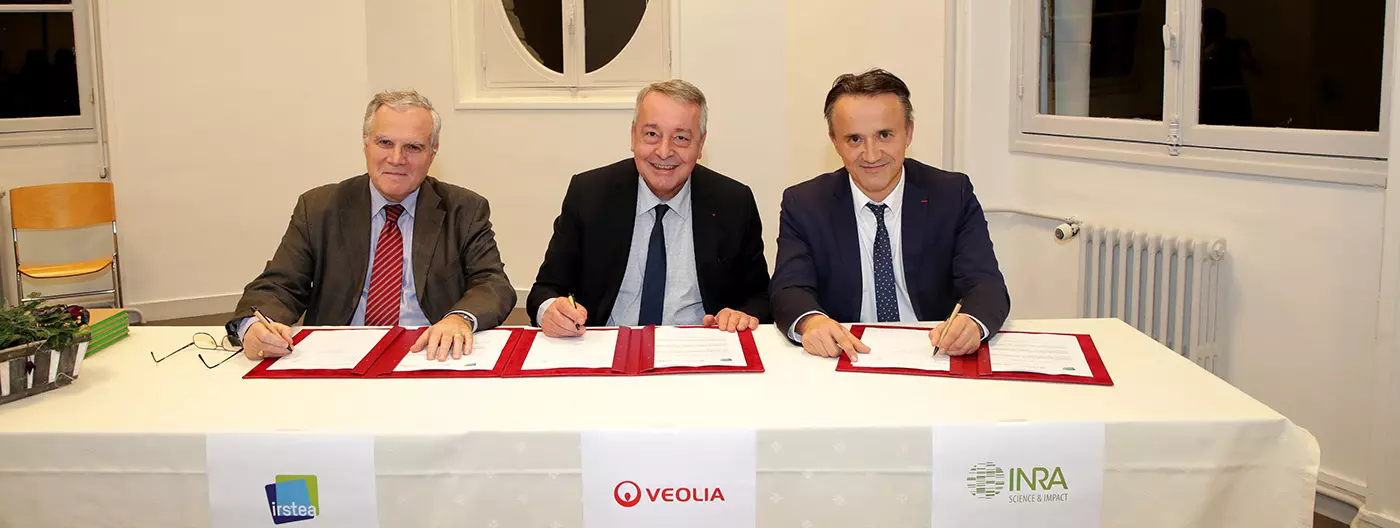
For the last 20 years INRA and Veolia have been collaborating in the framework of the QualiAgro research project, which aims to characterize the agronomic value of urban compost through long-term field trials.
INRA, IRSTEA and Veolia are also partners in the Smart Ferti Reuse research program, which supports agriculture and local communities in relation to the agro-ecological management of their wastewater. They also contribute to the PROTERR program to develop fertilizer materials from residues within the territories.
Developing compost from the circular economy
The new agreement will focus on using urban organic waste (bio-waste, green waste and sewage sludge) as an alternative to synthetic fertilizers. With the aim of preserving ecosystems, better managing resources at the territorial level and exploring new circular economy models.
"This agreement will allow us to experiment on a large scale with innovative resource management solutions," said Antoine Frérot. "It is a move towards a circular economy that is able to preserve nature while also using it."
"This partnership between public and private research strengthens the synergy of our collaboration in the service of the major challenge of organic urban waste treatment and recovery," added Philippe Mauguin.
"This framework agreement will enable us to increase exchanges between public and private actors in the French water sector and compare the results of public research with the needs on the ground in order to produce innovative solutions that are adapted to the local context," emphasized Marc Michel.
More:
> The Interview with Maria Albuquerque, Project Manager in Veolia’s Research and Innovation Department, read in Veolia’s Planet digital magazine.
> InVivo and Veolia join forces to develop the circular economy in the world of agriculture
> On the Press Day 2018 on “Tomorrow’s world is being invented today”: How do we feed 9 billion people in 2040?

